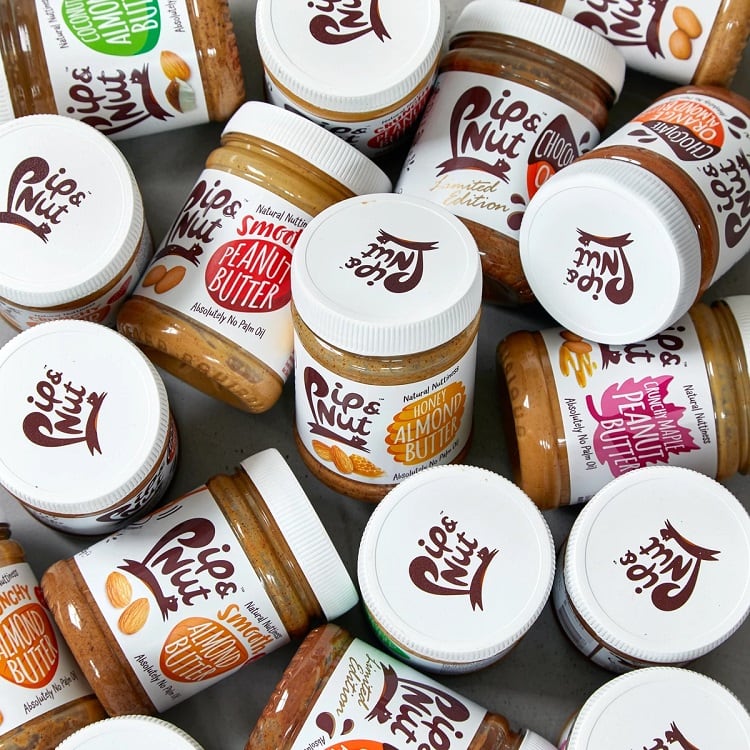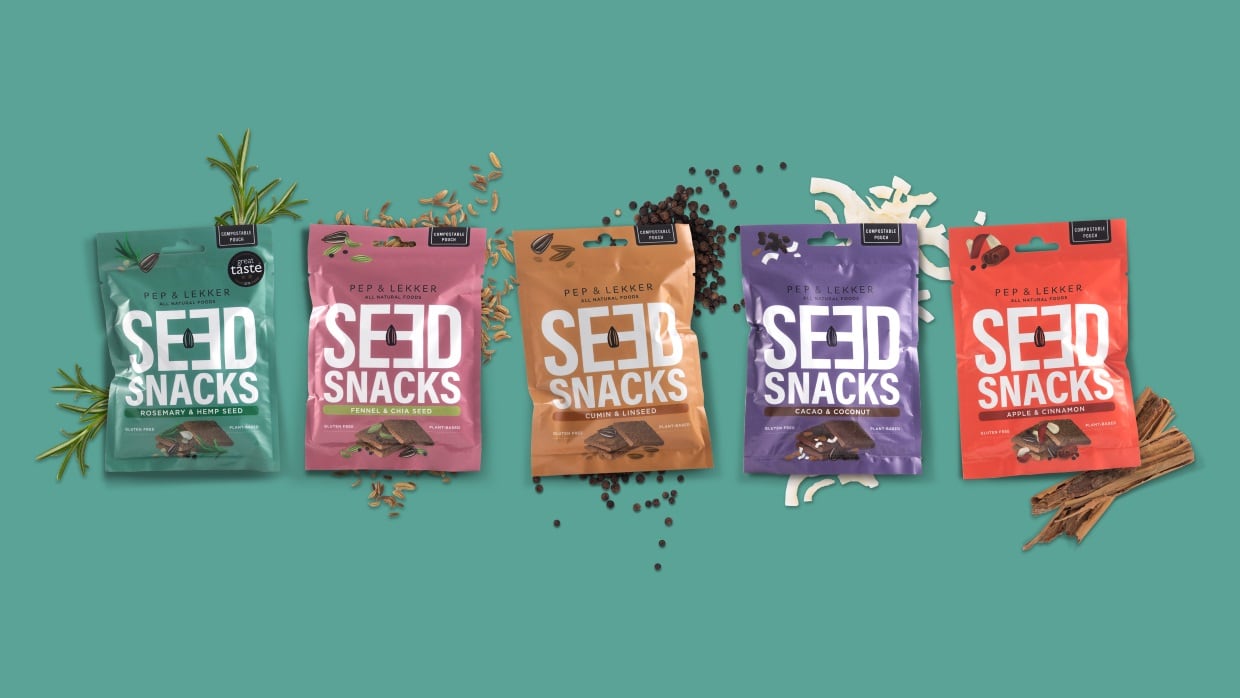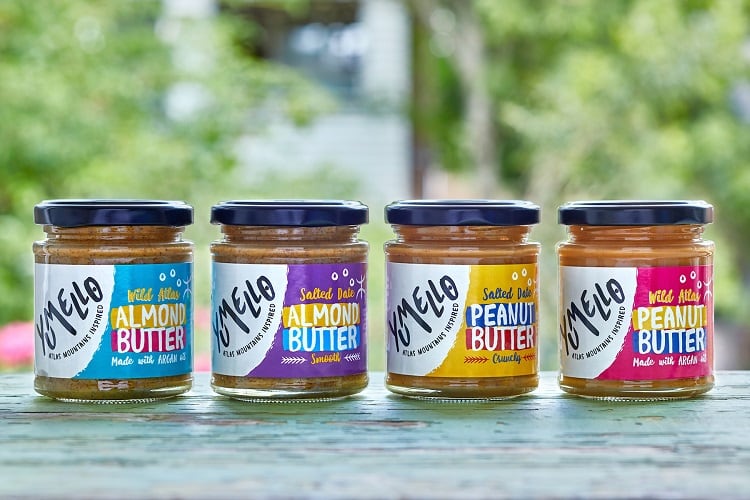B Corporations are purpose-driven companies designed to create benefit for all stakeholders, and not just shareholders. According to not-for-profit B Lab, which oversees the B-Corp certification process, certified businesses use profits and growth as a means to a greater end: positive impact for their employees, communities, and the environment.
As it stands, a total of 3,132 companies across 71 countries have achieved B-Corp certification. In the food and beverage industry, certified players include Unilever-owned Ben & Jerry’s, a number of Danone subsidiaries, and UK baby food brand Ella’s Kitchen.
And now, London-based nut butter brand Pip & Nut has been added to the list. B-Corp offers companies a ‘great framework’ to work towards, founder Pippa Murray told FoodNavigator just days after the October announcement. “It gives you a barometer of what ‘brilliant’ looks like in terms of a best-in-class team and culture, as well as from an environmental perspective.”
Why B-Corp?
Achieving B-Corp certification can prove a timely process, but one that Murray was determined to undertake having completed B-Corp’s initial online assessment in September 2018.
While still a relatively young brand – Pip & Nut first hit retailer shelves in January 2015 – Murray felt it was important to entrench the company’s purpose and values within the business early on. “Now is the time that we embed some of…our ambitions…from an environmental perspective into our day-to-day planning and longer-term thinking.”
There are both elements of push and pull, however. Ultimately, consumers are becoming more demanding of brands, said Murray, ‘as they should be’. Shoppers want to know if a brand is ‘going after growth for growth’s sake’, she continued, or whether it considers ‘all the different aspects of the business’ – including ‘where you can do good’.
“I firmly believe that brands that look after both profit and purpose – and put them on a level footing – will, in the long run, have longevity.” – Pip & Nut founder Pippa Murray
Rather than bring in consultants to advance the certification process, Murray built B-Corp related objectives into her then 12-strong person team (headcount has since expanded to 20).
“Everyone had objectives and deliverables they needed to work on,” the founder explained, whether that be “to produce a staff handbook or undertake an environmental assessment on our packaging to understand our CO² output.
“Everybody contributed. Spreading it across the team in that way really helped make sure we could actually do it”.
Moving from plastic to glass ‘is a key priority’
Pip & Nut successfully certified across four areas: people, the community, the environment, and governance.
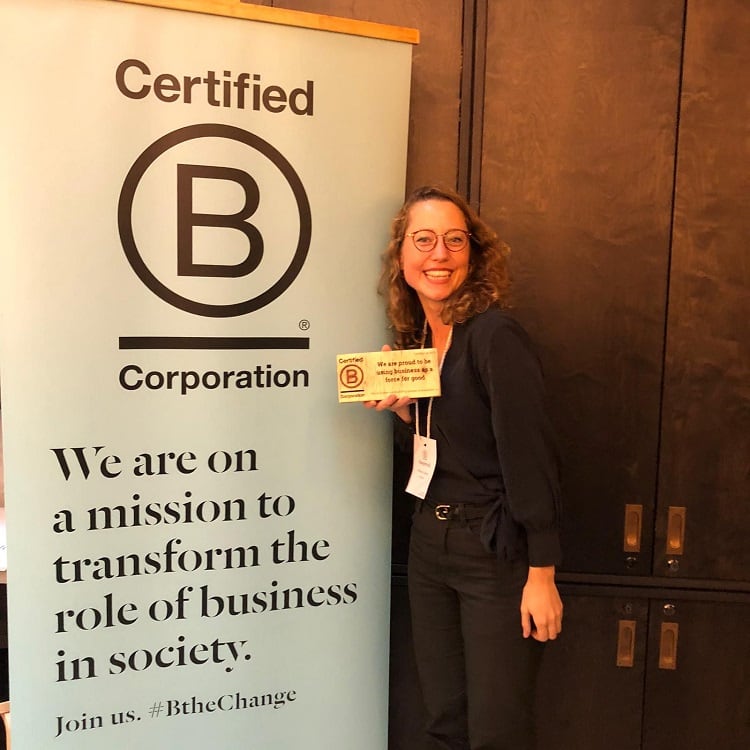
The brand’s work in environment was far-reaching, looking at its packaging, supplier base, and transport miles.
With regards to packaging, all nut butters are now sold in widely recyclable plastic jars. The company has also increased (up to 30%) the amount of recycled plastic incorporated into each jar.
“We also switched all our labels, which originally weren't recyclable, to be fully recyclable,” Murray explained. The lid, while not made from recycled material, is also widely recyclable. The only other component, the seal, is not yet recyclable.
All this focus on plastic and recyclability begs the question: could glass jars – which can be recycled endlessly – be a potential solution for Pip & Nut? “We are aware of the debate that plastic isn’t as widely recyclable in the UK…it is often shipped abroad,” Murray told this publication, suggesting that the company is ‘working towards’ glass in the long term.
One significant hurdle, aside from cost, is that one of Pip & Nut’s factories doesn’t currently handle glass. In fact, it would have to make ‘significant changes’ on-site in order to do so. “We [will be] working with them over the next year to make those changes and ultimately move our [core range] into glass.” While it would be ‘a big project’, the founder confirmed that ‘glass, for sure, is a key priority’.
Cutting transport miles
Market-wise, Pip & Nut is largely focused on the UK and Ireland, although the brand is also sold in smaller markets including Slovenia and Malta. Jars are transported from Pip & Nut’s manufacturing facilities, which recently underwent a rejig.
Relocating one of the manufacturing sites has helped, in part, to reduce haulier miles, the founder explained. “We have reduced the amount of mileage done through various changes throughout our supply chain, [including] by increasing the number of products we move on pallets. We’ve also moved one of our factories to the UK, which made it closer to all our depots.”
Ensuring that raw material sourcing and upstream operations are in line with Pip & Nut’s sustainability ambitions, are also part of the picture.
The company single sources hi-oleic peanuts, a variety that are ‘particularly delicious’, from Argentina, and its almonds, from California. In order to certify, Pip & Nut surveyed all suppliers across the board to better understand their policies regarding waste management and anti-slavery.
Murray also requested data regarding their energy usage, and how this changed over the past year. “A lot of the work was in gathering information around our supply based in order to understand what initiatives were already in place.”
The founder told us she was pleased to learn that a lot of suppliers already have waste management programmes in place and are becoming more energy efficient. In the longer-term, “there are still some things we want to talk with them [about]”, she revealed. “I’d love to talk to them about whether they can use renewable energy within their factory sites, or [whether] there are [employment] initiatives [to support] marginal groups that may struggle to get employment.”
People, community, governance
Back at London HQ, or ‘The Nest’ as it is endearingly termed, Pip & Nut has implemented a number of initiatives for its fast-growing team. Employees can now ‘flex’ their time outside of core working hours and are offered gym membership.
Access to professional development and education has also been improved. “We have formalised the [access process] for learning and development – allocating a very significant budget towards encouraging people to undertake formal learning,” Murray said.
In addition, Pip & Nut has implemented a diversity policy into its recruitment process, which means that all names, ages, and educational institutions are removed from CVs ahead of the ‘sifting stage’. Murray told us this policy encourages “more diverse groups of people to come through to the first-stage interview. I think it creates a fairer recruitment process”.
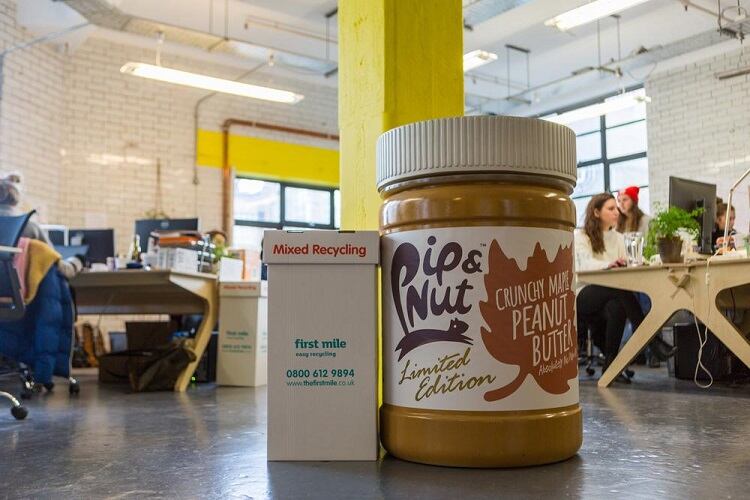
To bring a stronger community focus to the business, the company is consciously sourcing office supplies from local producers. Looking further afield, each Pip & Nut employee will now be allocated three additional days per year out of the office in order to volunteer within their community – at a charity of their choosing.
As a brand, Pip & Nut doesn’t currently donate to charity, although it does donate surplus stock to foodbanks. During the B-Corp certification process, the company committed to selecting a charity, and will be allocating budget to that charity as of 2020.
Turning to governance, the company has edited the wording of its governing documents to ensure all shareholders are committed to building profit as well as purpose. Further, Pip & Nut has appointed a board of shareholders who meet on a quarterly basis. The shareholder structure, as well as company accounts P&L details are made available to the whole team, which Murray said ensures “we are as transparent and accountable as possible”.
Next steps
Pip & Nut has publicised its B-Corp certification on its website and via social media. “It’s something that we want to shout about, and not just
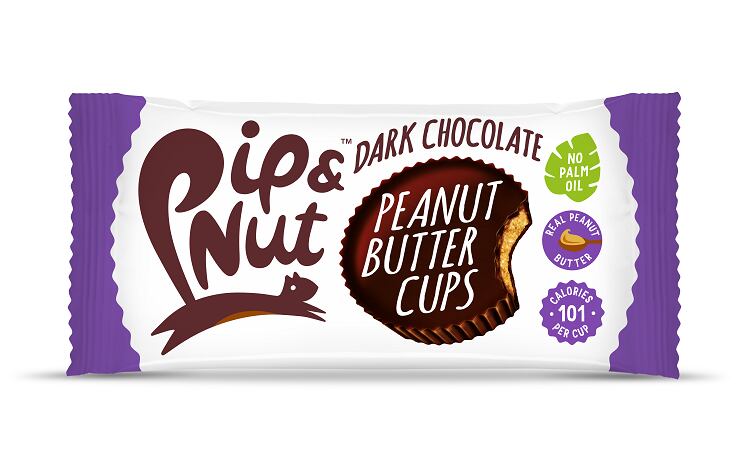
for people who are interested in the brand, but also to encourage others to certify”. Consumers can expect to see the B-Corp logo on nut butter packaging in the future.
Moving forward, Pip & Nut plans to continue range development. Just last month, the company made its first steps into the snacking market with a line of nut butter cups. The three new SKUs – milk chocolate peanut butter cup, dark chocolate peanut butter cup, and dark chocolate almond butter cup – are made using ethically sourced chocolate.
The brand is also ‘doubling down’ on building listings within current markets, Murray told us. “We’ve already got a big focus on broadening our product range and are looking at how we can grow the brand within the UK and Ireland in multiple spaces around the supermarket.”


